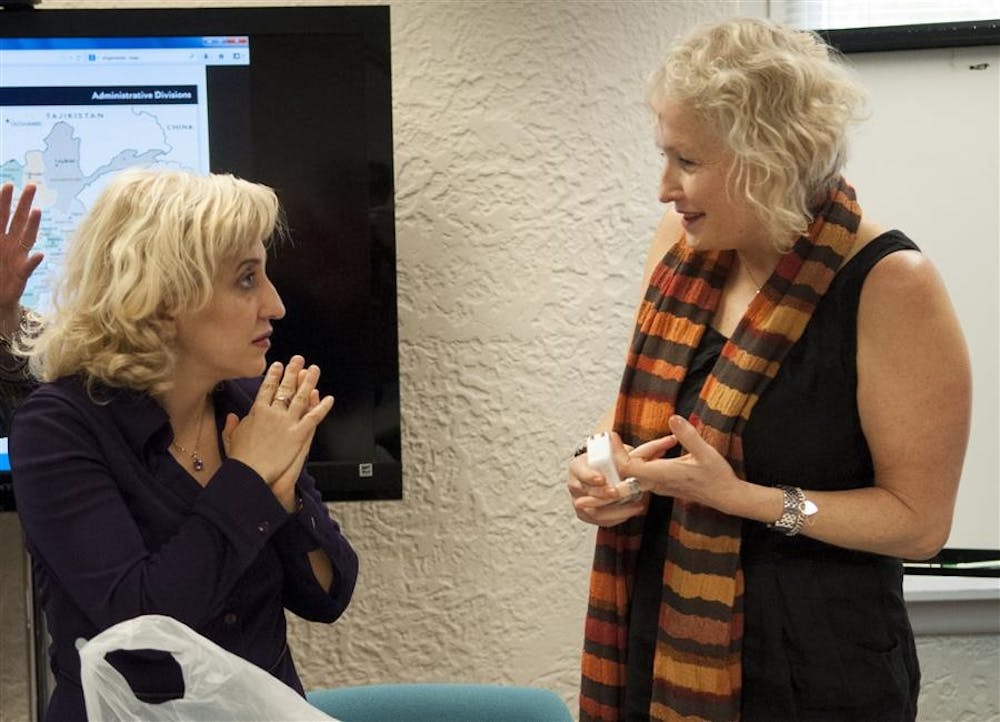The flesh market is growing in Afghanistan, and drugs are fueling it.
Investigative reporter Fariba Nawa discussed the interaction between human trafficking and drugs in a talk Tuesday as part of IU’s “Human Trafficking Awareness Week” at the Center for the Study of Global Change.
Trafficking victims’ stories often start in poppy fields, Nawa said.
Ninety percent of the world’s opium comes from Afghanistan. Farmers are lent seeds by drug lords, and the harvest of millions of dollars worth of drug ingredients begins.
But if a crop fails, whether because of drought or a disease on the farm, trouble ensues, Nawa said.
“The international mafia will come after you,” she said. “You’re in debt to them before your first harvest.”
And a payment has to be made.
But many farmers in Afghanistan are poor. If there’s no gold or money to give the mafia to reimburse them for the wasted seeds, family members become part of the deal, Nawa said.
Women and girls are first to be traded off. Nawa calls them “opium brides.”
But if none are available, boys come next.
“Boys are prime around the borders especially,” she said. “Everything bad, everything you can think of, happens along the borders because that’s where the drugs first come in.”
In January 2013, Afghanistan’s High Commission approved a plan that monitors human trafficking, and two officers were assigned to the task force in each of 34 provinces.
But those officers were later temporarily assigned to other duties, according to the State Department’s 2013 Trafficking in Persons Report.
Meanwhile, sexually transmitted infections are spreading. The more users, the more people are trafficked to trade for drugs.
Nawa said one million people in Afghanistan are addicted to heroin. About 2,000 cases of HIV were reported in recent years, and Nawa said she expects the prevalence has risen since.
She said educating boys is the future solution.
“Behind every successful woman in Afghanistan, there is a man,” she said. “So they are a very important component in solving this problem. They have to know this can’t be allowed.”
But she said an answer could also be found in Islamic scripture the culture has had all along.
“More classical Islam needs to be taught, too,” she said. “1,400 years ago this wasn’t a problem. The Koran is against these crimes and is a feminist text in a lot of ways. If women are reminded that God doesn’t want this to happen, it could be the first step for many of them.”
Follow reporter Ashley Jenkins on Twitter
@ashmorganj.
Writer discusses drug trade

Get stories like this in your inbox
Subscribe





